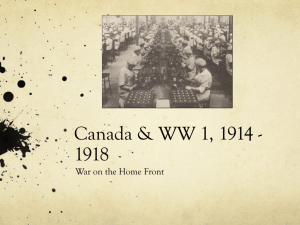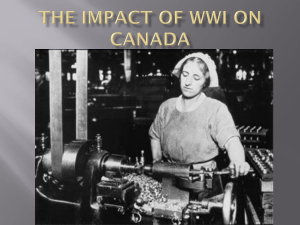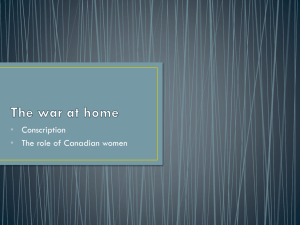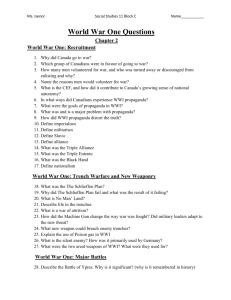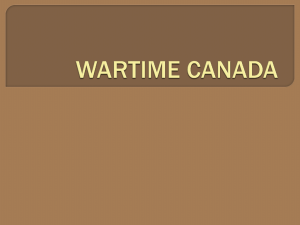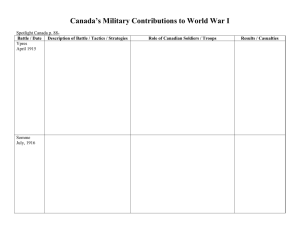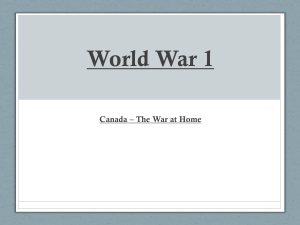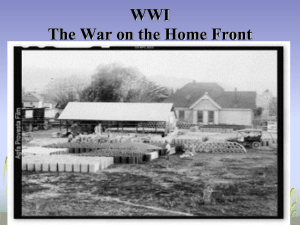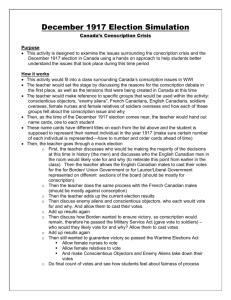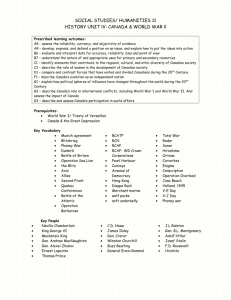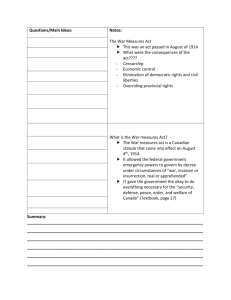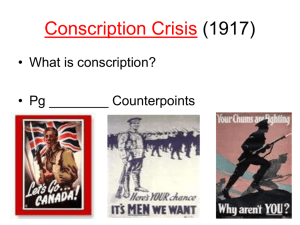CANADA AND WORLD WAR I -- WAR ON THE HOME FRONT
advertisement
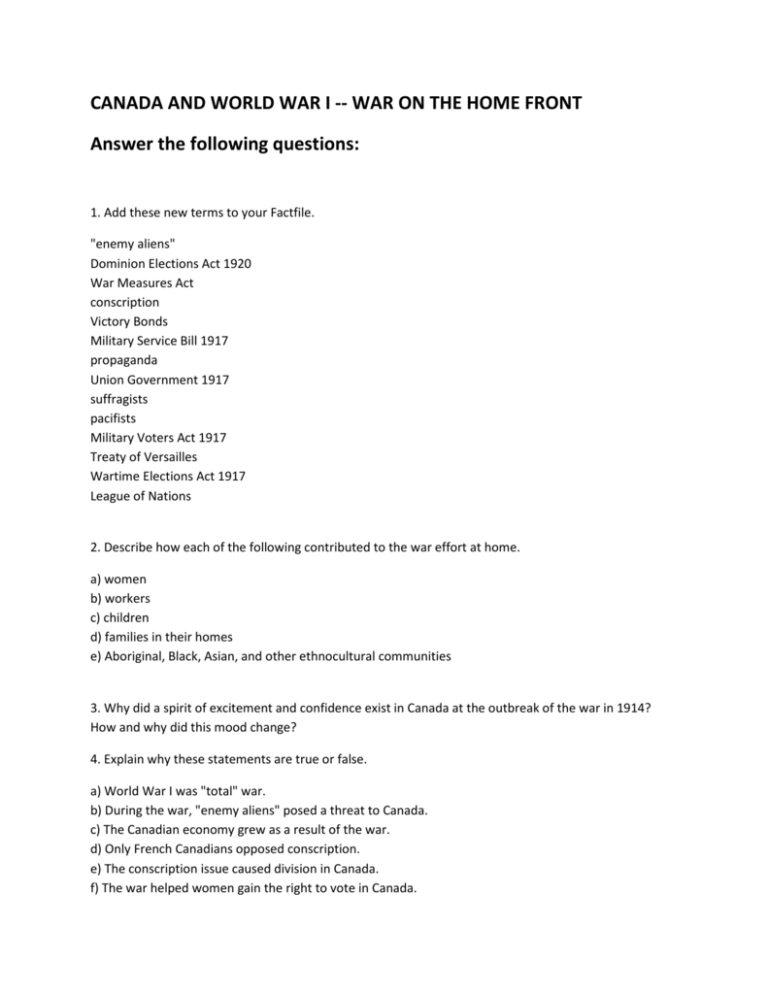
CANADA AND WORLD WAR I -- WAR ON THE HOME FRONT Answer the following questions: 1. Add these new terms to your Factfile. "enemy aliens" Dominion Elections Act 1920 War Measures Act conscription Victory Bonds Military Service Bill 1917 propaganda Union Government 1917 suffragists pacifists Military Voters Act 1917 Treaty of Versailles Wartime Elections Act 1917 League of Nations 2. Describe how each of the following contributed to the war effort at home. a) women b) workers c) children d) families in their homes e) Aboriginal, Black, Asian, and other ethnocultural communities 3. Why did a spirit of excitement and confidence exist in Canada at the outbreak of the war in 1914? How and why did this mood change? 4. Explain why these statements are true or false. a) World War I was "total" war. b) During the war, "enemy aliens" posed a threat to Canada. c) The Canadian economy grew as a result of the war. d) Only French Canadians opposed conscription. e) The conscription issue caused division in Canada. f) The war helped women gain the right to vote in Canada. 5. a) Explain why Canadians were considered to be part of the British army. b) How did this relationship between Britain and Canada change by the end of the war? 6. Suppose you have a vote on conscription in the parliament of 1917. Will you vote for or against? Evaluate the pros and cons and justify your decision. 7. a) Refer to the following bar graph showing Canadian casualties during World War I. In which year did Canada suffer the most casualties? Why was the number of casualties in this year significant? b) Refer to the pictograph showing the growth in Canada's economy during the war years. Which two areas of the economy showed the most growth? Suggest why. 8. Canada's economy boomed during World War I largely because of the great demand for food and war products. What problems might have arisen when the war ends? Why? 9. Why might Canadians feel that the experiences of World War I made the country better prepared to take control of its own affairs? 10. Which of the following terms of the Treaty of Versailles do you consider fair treatment of Germany? Explain why. i) the Allies took away all Germany's colonies ii) Germany's army was limited to 100 000 soldiers iii) Germany was held responsible for causing World War I iv) Germany was required to pay reparations v) Germany would not be allowed to have troops in the Rhineland for 15 years 11. It has been said that the Treaty of Versailles contained within it the seeds of anoth-er war. What do you think this statement means? Do you think it is correct? Why? 12. How did World War I contribute to Canada's growing identity?
